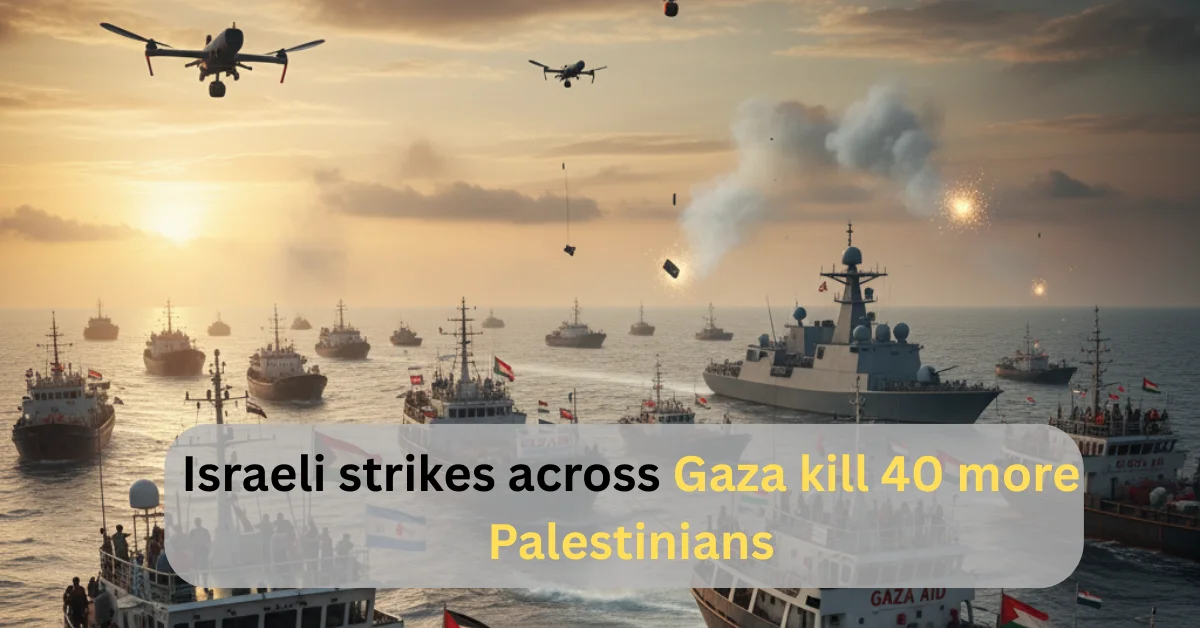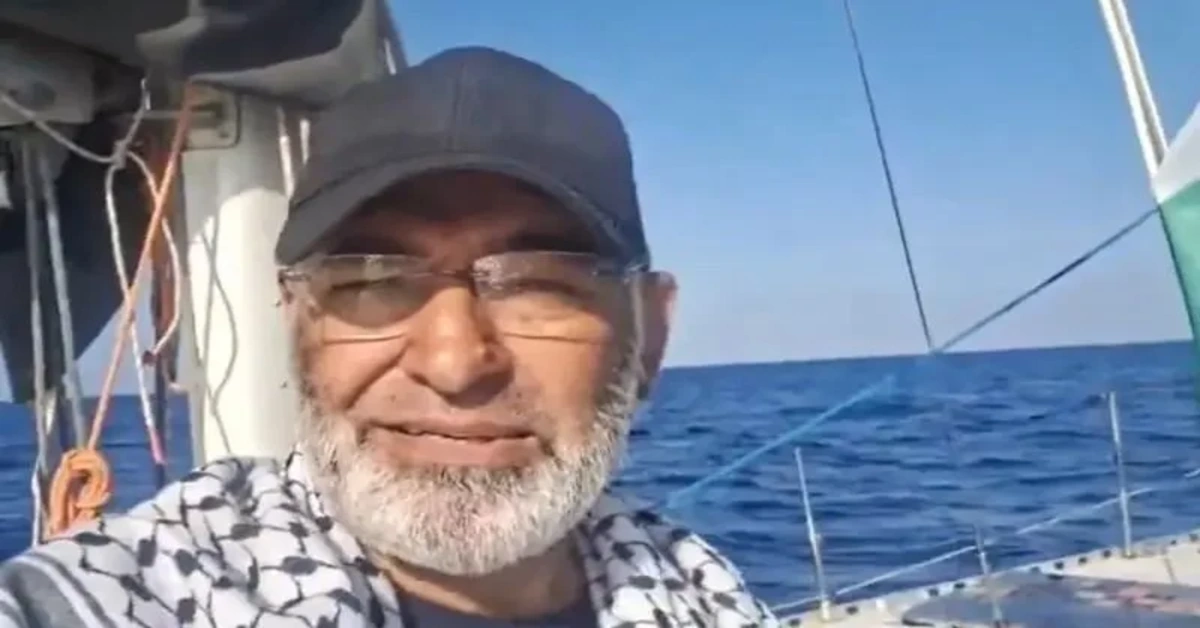The human rights situation in Gaza declined on Wednesday as Israeli strikes killed dozens of civilians. At the same time international attention shifted to the high seas where a flotilla carrying aid to Gaza reported coming under drone attack.
Heavy Civilian Toll in Gaza:
Israeli forces amplified their assault on Gaza City where entire neighbourhoods are now in ruins. On Wednesday alone 40 people were killed across the territory. Among them were 22 people including six women and nine children who died when three airstrikes struck into a warehouse being used as a shelter for displaced families near the Firas market.
Gaza’s Civil Defence spokesperson Mahmud Bassal described scenes of horror as emergency crews pulled bodies from the rubble. These were families already forced from their homes trying to find safety, he said.
The United Nations estimates that by late August roughly one million people were still living in Gaza City and nearby areas where hunger conditions have already been declared. With air and ground attacks continuing hundreds of thousands more are on the move searching for shelter in a city that is running out of safe places.
Flotilla Under Attack:
While the crisis deepened on land, a new controversy emerged at sea. The Global Sumud Flotilla, a mission of 51 vessels carrying aid and activists from 45 countries reported coming under attack while at sea off the coast of Greece.
Unidentified objects landed on their decks on Tuesday, triggering more than a dozen blasts. The GSF accused Israel of attempting to sabotage their journey with explosives, incendiary devices and chemical substances designed to make their ships unseaworthy.
The United Nations called for an immediate investigation. Any violations of international law must not go unanswered. Those responsible must be held accountable, said Thameen Al-Kheetan, spokesperson for the UN Human Rights Office.
Outrage and Support from Europe:
The European Union quickly condemned the reported attacks, with officials in Brussels describing them as unacceptable. Italy went a step further by dispatching a navy frigate already stationed in the eastern Mediterranean to provide protection and where needed, conduct rescue operations.
Italian Defence Minister Guido Crosetto stated that the vessel was already en route, while Foreign Minister Antonio Tajani emphasised that Israel had been reminded of its obligations under international law.
The Greek coastguard confirmed that an EU Frontex patrol boat had briefly responded to a report of threats against a Polish-flagged vessel in the flotilla. However, the crew stated that they did not require assistance, and the patrol subsequently withdrew.
European Commission spokesperson Eva Hrncirova added, Freedom of navigation must be respected. No drone strikes, no seizures, no use of force against the flotilla can be tolerated.
We Carry Food, Not Weapons:
The GSF says more than 500 unarmed civilians are on board, including parliamentarians, doctors and well-known activists. Swedish climate activist Greta Thunberg, one of the passengers, insisted the intimidation tactics would not deter their mission.
We are sailing peacefully in international waters. We are not carrying weapons. We are carrying food, baby formula, medical supplies, and water, Thunberg said in a live interview broadcast on the flotilla’s Instagram account.
The GSF describes itself as independent, unaffiliated with any government or political party. Its name, Sumud Arabic for resilience reflects the spirit of those on board who remain determined to deliver aid to Gaza despite repeated attempts to block them.
A Growing Flashpoint:
This is not the first time activists have tried to challenge Israel’s blockade of Gaza by sea. Similar missions in June and July were intercepted and prevented from reaching the territory. The flotilla also reported two earlier drone attacks in Tunisia before departing for Gaza this month.
With 51 vessels now sailing together most near the Greek island of Crete the Sumud Flotilla has become a powerful symbol of international solidarity with Palestinians, even as the risks increase.
As the situation on land worsens and the seas grow more hostile, the flotilla’s voyage has become more than a delivery of aid; it is now a test of international law, human rights, and the global community’s resolve to protect civilians in one of the world’s most volatile conflicts.
Source: Dawn News




Join The Discussion